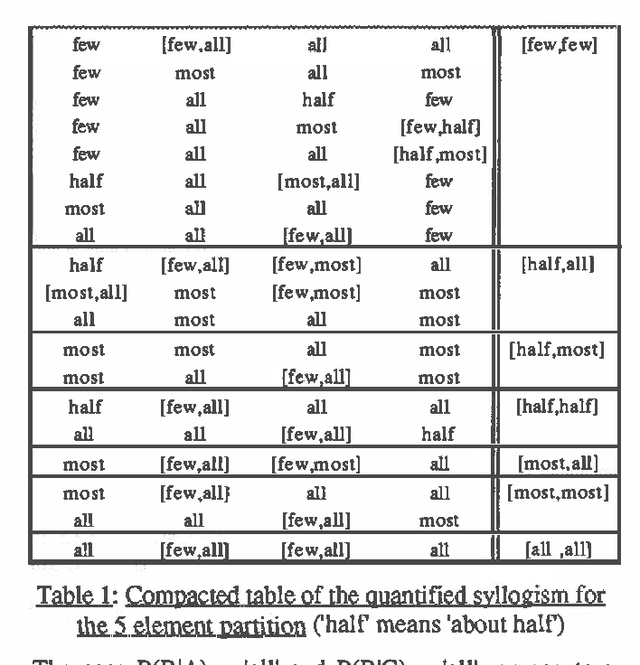A Symbolic Approach to Reasoning with Linguistic Quantifiers
Paper and Code
Mar 13, 2013
This paper investigates the possibility of performing automated reasoning in probabilistic logic when probabilities are expressed by means of linguistic quantifiers. Each linguistic term is expressed as a prescribed interval of proportions. Then instead of propagating numbers, qualitative terms are propagated in accordance with the numerical interpretation of these terms. The quantified syllogism, modelling the chaining of probabilistic rules, is studied in this context. It is shown that a qualitative counterpart of this syllogism makes sense, and is relatively independent of the threshold defining the linguistically meaningful intervals, provided that these threshold values remain in accordance with the intuition. The inference power is less than that of a full-fledged probabilistic con-quaint propagation device but better corresponds to what could be thought of as commonsense probabilistic reasoning.
 Add to Chrome
Add to Chrome Add to Firefox
Add to Firefox Add to Edge
Add to Edge